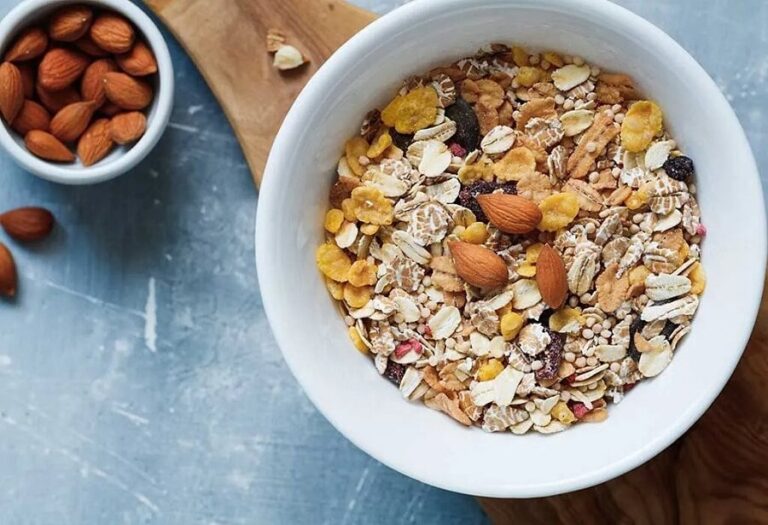Caffeine – which is in coffee – is a truly amazing substance. It stimulates the central nervous system, helps fight drowsiness, improves concentration, affects mood and even digestion. However, only when used in small to moderate doses.
Too much caffeine has been linked to anxiety, sleep disorders, high blood pressure, and even addiction. Therefore, understanding the maximum amount of coffee is important to obtain more benefits than harm.
Read on to find out how much coffee is good to drink every day and what is the maximum amount of caffeine recommended by experts.
Is drinking coffee every day bad?
There are two important things to consider when drinking coffee. First, the total daily consumption of caffeine . Second, the amount of caffeine in a particular serving.
As a general rule, the maximum safe daily dose of drinking coffee every day is around 400 mg of caffeine, and it is recommended to consume no more than 300 mg at a time. (3)
In fact, several sources suggest that 400 mg of caffeine per day can be part of a healthy diet, and is safe for most healthy adults. This is the equivalent of 4 cups (945 ml) of coffee.
Therefore drinking coffee every day is considered safe, as long as certain amounts are not exceeded.
What does coffee do to the body?
Physiologically, the key action of caffeine in coffee is to block the action of adenosine in the brain. Under normal conditions, adenosine leads to relaxation; however, when coffee or tea is drunk, this action is blocked, indirectly causing an invigorating effect.
Among other things, drinking coffee increases the production of hormones adrenaline and cortisol, their action is associated with situations that require rapid decision-making at a dangerous moment (“fight or flight” mechanisms). That is why it is said that large doses of caffeine can deplete the nervous system.
On average, the half-life of caffeine (the time it takes to halve its level) is 3 to 5 hours, and the effect itself begins in 20-40 minutes. It can take up to 9 hours to completely remove caffeine from the body.
What Caffeine Does:
- blocks the relaxing adenosine by stimulating the central nervous system
- causes an increase in adrenaline, cortisol and dopamine
- increases concentration and improves mood
How many coffees can you drink per day?
Multiple studies have found that a daily coffee intake of four cups per day is a safe amount. (2,3,4,)
Now, the caffeine content of coffee varies widely, from 50 to more than 400 mg per cup. A small cup of homemade coffee could provide 50 mg, while a large Starbucks cup (475 ml) contains more than 300 mg.
As a general rule of thumb, you can assume that an average 240 mL cup of coffee offers around 100 mg of caffeine.
Also keep in mind that there are many other sources of caffeine, such as tea, soda, energy drinks, chocolate, and certain medications. To make it easier for you, we have made a table with the recommended amount of coffees per day:
Caffeine content in tea and coffee:
- brewed coffee (250 ml) – 95-200 mg – 2, 3 per day
- decaffeinated coffee (250 ml) – 2-30 mg – 12 per day
- espresso (30 ml) – 40-75 mg – 4 per day
- black tea (250 ml) – 15-70 mg – 6 per day
- green tea (250 ml) – 25-45 mg – 6 per day
- energy drink (250 ml) – 4 mg per day
- dark chocolate bar (100 g) – 30-50 mg
- cola (330 ml) – 25-40 mg
- cup of hot chocolate (240 ml) – 5-10 mg
How long does the coffee work?
On average, the half-life of caffeine (the time it takes to halve its level) is 3 to 5 hours, and the effect itself begins in 20-40 minutes. It can take up to 9 hours to completely remove caffeine from the body.
However, a lot depends on the source of the caffeine; Since instant coffee often contains synthetic caffeine, it works faster than the caffeine in black or green tea.
Also, not all people react to caffeine in the same way, so if you experience some of the negative symptoms of the substance, such as insomnia or anxiety, don’t be afraid to cut back or cut down on your coffee consumption.
So is coffee healthy?
Many studies, cited above, suggest that up to four cups of coffee is a safe amount, but is it really beneficial for you?
Several studies associate normal coffee consumption with health benefits, but do not prove causation.
According to the AJCN, people who do not drink coffee are 11% more likely to suffer from cardiovascular disease than those who consume one or two cups a day. The study found that decaf drinkers were 7% more likely to develop cardiovascular disease.
A study from the National Institutes of Health published similar findings: Those who drank at least three cups of coffee a day had a 10 percent lower risk of death. The review looked at more than 400,000 men and women ages 50 to 71.
Additionally, two studies in the Annals of Internal Medicine supported the idea that a few cups of coffee are linked to longer life.
However, it is important to note that these studies simply look at trends between coffee consumption and health; they do not determine whether coffee actually produces health benefits.
With the data we have so far it’s wiser to view coffee as a relatively neutral substance – it won’t actively benefit your health, but a safe amount isn’t necessarily bad for you either.
ABSTRACT
A safe dose of caffeine is 400 mg a day in at least two doses. This is roughly the equivalent of 3-4 cups of coffee per day. Intake of 450-500 mg of caffeine or more can negatively affect a person’s psychological state and even lead to panic attacks. Therefore it is not advisable to drink more than that amount every day.







